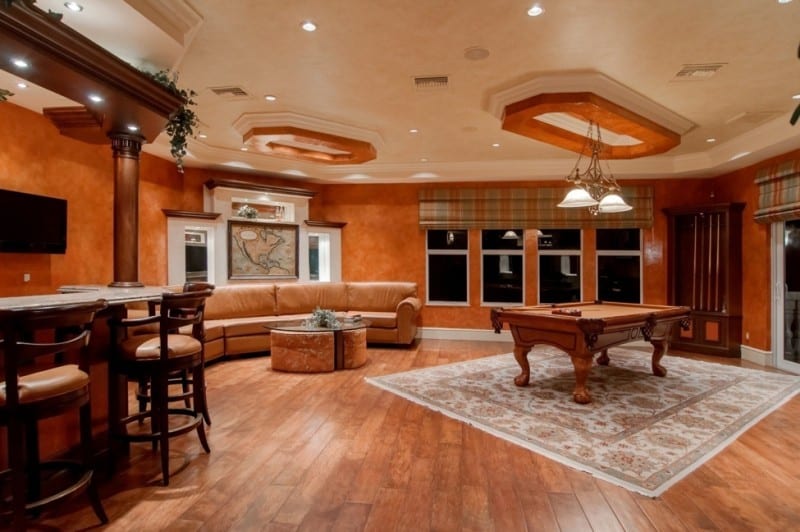If you’re looking into changing your flooring, here are all the reasons why Brazilian teak hardwood flooring might be a great option for your home.

Hardwood flooring can lift up the look of a room without changing anything else. Whether you’re trying to brighten up a dining area or spruce up a study room, hardwood flooring does the job well.
Not only does this kind of flooring look great, but it is also strong and durable. Though wood flooring can be more expensive, its return in the long run is worth it.
There are many options for wood when you are looking into hardwood flooring. The wood you go for all depends on what kind of look and finish, your budget and the durability of the wood you are looking for.
Your choices are virtually endless, but there is a reason why Brazilian teak is a popular choice for flooring.
Below we discuss all the reasons why homeowners opt for this kind of flooring and what the drawbacks are:
What is Brazilian Teak?
Brazilian Teak, also commonly known as Cumaru, is a type of wood that is frequently used for flooring and furniture making.
The tree is indigenous to South America, specifically Brazil, which is clear from one of its many names. The color of the wood is similar to that of regular teak with reddish-brown tones, but it is not actually related to teak.
Cumaru is known for its strength and durability, which surpasses any local hardwood and its beautiful shiny appearance. It is a popular choice amongst homeowners that are looking for a long lasting luxurious option for flooring in their houses.
Brazilian Teak Hardwood Flooring Pros
Going for Brazilian Teak flooring comes with a lot of pros, including its strength, durability and longevity. Here are some of the reasons to get this kind of wood for your home:
Strength
Cumaru is an extremely strong wood that can handle a lot of foot traffic and is difficult to scratch or dent. It scores a 3450 rating on the Janka Hardness Scale, proving that it is better than any local hardwood that you might get. In comparison, another popular wood choice is red oak, which scores 1290 on the same scale.
Durability
Brazilian teak is known for its durability. It does not get damaged in extreme weather conditions and has great rot and decay resistance. Another plus point is that this wood is resistant to termites and other wood-eating critters; meaning, it also protects itself from what most wood can’t.
Appearance
This South American wood has a lovely reddish-brown appearance with gold hues. It exudes luxury with a shiny finish that is smooth to the touch. The hues of the wood brighten up the room without being too overpowering. This wood has a richness to its appearance that can elevate the look of any room. Plus, the wood has a pleasant and subtle vanilla-cinnamon scent.
Availability
Cumaru wood is quite easily available because of its abundance. It is available at most flooring retailers and comes in a number of different sizes. Most stores have the wood pre-finished, but if you want to apply your own finishing, you might have a harder time sourcing the wood.
Pricing
Though this wood looks very luxurious and expensive, it is, in fact, pretty reasonable to install. This wood comes prefinished before import and in comparison to other imported wood, it is relatively inexpensive.
Sustainability
Following the strict laws in place in South America, this wood is sourced responsibly and exists in abundance. It is not on the CITES Appendices or on the IUCN Red List of Threatened Species; meaning, that it can be purchased with a clear conscience!
Brazilian Teak Hardwood Flooring Cons
Though there aren’t many cons to Cumaru flooring, here are some that people have come across with this type of flooring:
Workability
Due to its durability and strength, this wood is not the easiest to work with. It is a very dense wood and has an interlocked grain, which can pose problems for installers.
Installers have to use larger nail gauges because of the density. Also, the high oil content of the wood can be problematic during the gluing process.
Gaps
Cumaru is known for its shrinking and expanding properties with the weather and humidity changes. Though the movement is moderate, anywhere that does not have controlled humidity or temperature can cause gaps between panels over time. These gaps can become quite large, which can be problematic.
Final Words
Brazilian Teak hardwood flooring is a great, long-lasting addition to any home. Add a touch a luxury that lasts by going for this wood.
It is a great substitute for irresponsibly sourced teak that is also a lot more expensive. Though the wood is not related to real teak, the look and feel is comparable. We hope our breakdown of the pros and cons helps you decide if this wood is for you!
Related Posts
- Different Types of Finishes That Make Concrete Floors Aesthetically Appealing
- 10 Main Pros and Cons of Acid Stained Concrete Floors
- 3 Methods to Remove Candle Wax From Your Carpet (With Iron, Hair Dryer, Natural Products)
- 13 Types of Carpets for Your Home (By Material, Pile, Padding)
- How Much Does it Cost to Epoxy a Garage Floor? All Details Below
- 20 Different Types of Tiles for Home Flooring, Walls, Countertops, Backsplash
Glenn, I am considering replacing my damaged engineered 5″x1/2″ flooring with Camaru. I will be set on a concrete floor with a sound barrier all glued down.
Do you have any thoughts about this application?
Richard Mills
Richard, that would be fine. I would check the issue with shrinkage and humidity though (to prevent gaping). Have a look here: https://www.houzz.com/discussions/5165892/cumaru-brazilian-teak-floors-prevent-gaps